If you’re thinking about selling your home, refinancing, or just curious about what your house is worth, knowing how to calculate home valuation is a big deal. With 2025 revaluations happening across Connecticut, many homeowners are noticing changes in their property assessments. This guide will help you understand what affects your home’s value, the best ways to estimate it, and how to get the most accurate number possible.
Understanding Home Valuation: What It Is and Why It Matters in CT
Your home’s valuation is simply what your property is worth in today’s market. It’s not the same as your listing price or what you hope to sell for. Instead, it’s based on data like nearby sales, location, and your home’s condition. In Connecticut, knowing your home’s value is useful for many reasons:
- Selling: Helps you price your home correctly.
- Refinancing or getting a HELOC: Lenders use it to decide how much you can borrow.
- Estate planning: Shows the true worth of your property.
- Taxes: Local tax assessors use your home’s value to calculate your property tax bill.
In CT, your property is taxed at 70% of its fair market value, so getting an accurate estimate matters a lot.
Method 1: Using Online Tools to Calculate Home Valuation in CT
The easiest way to start is by using online valuation tools. These tools use public data, market trends, and recent sales to estimate what your home might be worth. They’re quick and free, but keep in mind they can’t see your kitchen updates, new roof, or other special features.
Zillow’s Zestimate: The Most Popular Option
The Zillow Zestimate is one of the best-known online tools for checking your home’s value. It uses a mix of public data and algorithms to create an estimate. Zillow reports that its national median error rate is about 2.4% for homes listed for sale. But in smaller Connecticut towns or rural areas, it can be a little less accurate because there are fewer recent sales to compare. Even so, it’s a great starting point to see how your home’s value stacks up against others nearby.
Redfin Estimate: A Similar Tool with a Twist
The Redfin Estimate works almost the same way, but updates more often, sometimes daily. It pulls data directly from the Multiple Listing Service (MLS), so it can reflect new listings and sales faster. While it’s usually close to the Zestimate, remember it still doesn’t account for personal upgrades, renovations, or a home’s unique charm.
Bank & Lender Estimators (Chase, Bank of America)
Big banks like Chase and Bank of America also offer free home value calculators. These tools often connect to their mortgage or HELOC pages, but they use real market data to give you a rough idea of your property’s worth. If you’re thinking about refinancing, checking your bank’s estimate can be a smart move; it’s fast, free, and usually pretty reliable.
Read our guide on Connecticut property valuation and ensure you’re paying a fair price.
Method 2: Professional Valuations for Maximum Accuracy
Online tools are handy, but when you need a truly accurate number, it’s best to turn to a professional. Whether you’re selling, buying, or refinancing, professionals use two main methods: a Comparative Market Analysis (CMA) or a formal appraisal.
Comparative Market Analysis (CMA): The Realtor’s Method
A Comparative Market Analysis, or CMA, is a report created by a local real estate agent. It compares your home to others that recently sold nearby—called “comps.” Here’s what an agent looks at when creating a CMA:
- Location and school district.
- Property size and layout.
- Age and upgrades (like a new kitchen or roof).
- Style and features.
- Recent nearby sales.
Because local agents know the area well, they can spot things an online tool might miss, like how being close to a train station or in a certain neighborhood can raise your value. Most agents, including Kristin Egmont, offer CMAs for free, which makes them an excellent second step after checking online tools.
Formal Appraisal: The Lender’s Gold Standard
If you’re applying for a mortgage or refinance, a licensed appraiser in CT will do a formal appraisal. This is an in-person inspection that looks at every part of your property. Appraisers consider:
- Home size, layout, and structure.
- Condition and quality of materials.
- Location and neighborhood.
- Comparable recent sales.
A formal appraisal usually costs $400–$700, but it’s the most reliable and lender-approved way to know your home’s market value.
Get an immediate valuation of your home → Know your home’s worth!
Key Factors That Drive Connecticut Home Values in 2025
Home prices in Connecticut are affected by many factors, some you can control, and some you can’t. Here’s what matters most in 2025.
Location and Neighborhood
Location is always the top factor. Homes in safe, desirable neighborhoods with good schools and amenities will always hold stronger value. Some things that boost home prices include:
- Being close to highways, train stations, or downtown areas.
- Access to beaches, parks, and local shops.
- Top-rated school districts, like those in Westport or Greenwich.
- Low crime rates and clean surroundings.
If you live in one of the best neighborhoods in CT, your home value likely benefits from the demand in that area.
Property Features and Condition
The look and feel of your home also make a big difference. Buyers (and appraisers) notice updates and overall condition. Here’s what adds value:
- Modern kitchens and bathrooms.
- Energy-efficient systems and windows.
- Extra living space, like finished basements or attics.
- Great curb appeal, fresh paint, tidy landscaping, and clean exteriors.
Homeowners often see the best return on investment (ROI) from kitchen remodels, bathroom updates, and exterior improvements.
Current Real Estate Market Conditions
Connecticut’s real estate market is still competitive in 2025. According to CTPost, prices are rising in cities like Hartford and New Haven, and inventory remains tight. That means homes are selling faster and often for higher prices, especially in move-in-ready condition.
Even with higher mortgage rates, demand is strong because supply is still limited. So, if you’ve maintained your home well, your property value likely increased over the last year.
Struggling in a tough real estate market? Discover Proven Strategies to Find Your Dream Home.
The 2025 Connecticut Revaluation: How It Impacts Your Taxes
Many towns in Connecticut are doing property revaluations in 2025, which could affect your taxes. Here’s a quick breakdown:
- Assessed Value: Towns assess your home at 70% of its market value.
- Mill Rate: This is the tax rate set by your town (for example, 18 mills = $18 per $1,000 of assessed value).
| Property Tax Formula: Assessed Value × Mill Rate ÷ 1,000 = Property Tax |
Example:
| Market Value | Assessed Value (70%) | Mill Rate | Estimated Annual Tax |
| $600,000 | $420,000 | 18 | $7,560 |
In 2024, many Connecticut towns saw average increases of about 34% in assessed values. That means your tax bill might go up even if your mill rate stays the same. If you think your new assessment is too high, you can appeal it through your local Board of Assessment Appeals by providing evidence, like a recent appraisal.
Conclusion
Getting your home’s value right in Connecticut is simple. For valuation, refinancing, or selling, hire a licensed appraiser for an official report. The above steps together give you a clear picture of your home’s true worth. Reach out to Kristin Egmont, your local real estate expert in Westport, CT. Get a free home valuation report and guidance to understand your property’s true value.
Frequently Asked Questions (FAQ)
Q1. What is the difference between the assessment value and the market value?
Ans. The market value is the cost that a home will most likely fetch at an open market and is based on such factors as the location, condition, and recent sales of other similar homes. Assessed value, in contrast, is the one that is given by a municipal assessor as the value to be used in the assessment of taxes. The statutory assessed value is 70 percent of the fair market value, and your property tax bill is calculated based on that assessed value in Connecticut.
Q2. Towns, how often do properties in CT get revalued?
Ans. The Connecticut state law mandates that the city get a revaluation of its property after every five-year interval. This is done so that all the properties are evaluated at their fair market value, and the tax assessment is brought to the real estate market trends. There are a lot of towns with revaluations set to be completed in 2025, though this might affect the way taxes would be levied in the future, depending on the extent of property value fluctuations since the last assessment date.
Q3. To what extent can I object to my assessment of property tax?
Ans. Yes, homeowners in Connecticut are entitled to appeal their property tax assessment. The initial one is to submit an appeal to your local Board of Assessment Appeals (BAA) before the specified deadline, which is usually in February. You can either coordinate with the Superior Court by appealing the decision of the BAA in case you are not content with it.
Q4. What was the home appraisal cost in CT?
Ans. A single-family home in Connecticut is around $600 as the average cost of a home appraisal. Nevertheless, the amount of this fee may depend on the type, size, and complexity of the property. An example is a multi-family home appraisal that can cost more and may even cost up to $725, whereas a simple drive-by or desktop appraisal can cost less, and not all lenders accept them.
Q5. Are all home improvements beneficial to value?
Ans. No, not every home upgrade will add value to a home, and only very few can be one to pay out on a dollar-to-dollar basis. The highest ROI projects in Connecticut are the ones that add curb appeal and functionality, e.g., changing a garage door, remodeling kitchens and bathrooms, or adding a deck. Excessively personalized or high-end luxury additions can have less major payoffs, particularly when they do not conform to the norms of the neighborhood.




